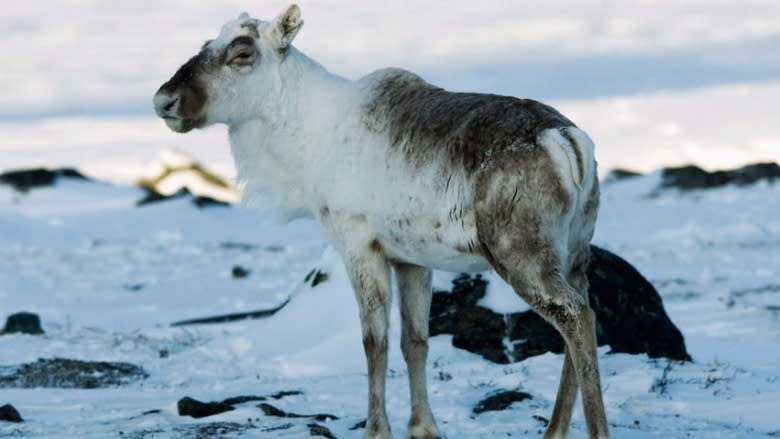Four things to know from Nunavut's legislature Thursday

Nunavut MLAs continued their busy fall sitting with an action-packed agenda on Thursday. It covered everything from wildlife to a Nunavut university to allowing alcohol sales on election day.
1. Seal skin tracking goes high tech?
The MLA for Iqaluit-Tasiluk wants to know how the Nunavut government plans to certify seal skins, now that furs harvested under the rules of the European Union exemption can be certified for sale in Europe.
"How are our seal skins going to be distinguished from other seal skins that are harvested around the world under different conditions, from traditional hunting methods?" asked George Hickes.
"Is there going to be a serial number? Is there going to be some type of a stamp? That's what I'm looking for."
The government will use a barcode system to keep track of the seal skins, said Environment Minister Johnny Mike in Inuktitut.
He said his department has been working closely with the federal Department of Fisheries and Oceans.
2. Southampton Island caribou population on the rise
Nunavut's environment department has submitted a request to the Nunavut Wildlife Management Board recommending that it increase the total allowable harvest of Southampton Island caribou to 1,600, up from the current limit of 1,000.
The Southampton herd, and its quota, are controversial. The quota put in place in 2012 was the first one imposed on Inuit.
"In May of this year, we conducted a caribou population survey on Southampton Island," Mike said on Thursday. "This new survey indicated that the number of caribou on the island had increased by around 40 per cent."
"This demonstrates yet again the effectiveness of our co-management model, which allows us to respond to concerns on the ground, and adapt our management regime in response to changing circumstances."
3. Is Nunavut ready for a university?
Joe Savikataaq, the MLA for Arviat South, questioned whether this is a good time to establish a university in Nunavut.
"We're all aware that the department of education faces a number of challenges in producing graduates who have the necessary educational levels and abilities to continue to post secondary education," Savikataaq said.
"There are also ongoing challenges and financial constraints to providing enough post-secondary education and training through Nunavut Arctic College and its cultural institute to fill current needs in Nunavut's labour force."
On Wednesday, the government awarded KPMG auditing firm the $246,269 contract to do a feasibility study on a university.
Education Minister Paul Quassa said it's apparent Nunavut needs a university.
"It is really going to benefit everyone in Nunavut," said Quassa in Inuktitut. "We say in the land claims agreement certain things we are going to follow and it will help us follow the land claims agreement, especially Article 23."
Article 23 of the Nunavut Land Claims Agreement is about Inuit employment in the government.
The feasibility study will try to answer a long list of questions, including whether there are enough students to demand a university, what infrastructure would be needed and what types of programming would meet the needs of Nunavummiut.
It could be done by early spring 2016.
4. Bills, bills, bills
Bill 9, an act to amend the Nunavut Election Act and the Plebiscites Act, passed its final reading Thursday, which means soon alcohol can be sold on election day in Nunavut.
Currently, alcohol is not allowed to be sold at bars or restaurants when polls are open on election day, but that prohibition will be repealed.
The bill also makes changes to the Plebiscites Act, before next year's anticipated plebiscite on the sale of municipal land.
It allows for the chief electoral officer to stay in office until reappointed or until a successor is appointed by the legislative assembly. The term for Nunavut's current chief electoral officer ends next month.
Bill 8, the Legislative Assembly Statutes Amendment Act, stops a member from accruing pensionable service if he or she is suspended.
It also extends the term of the languages commissioner from four years to five, to keep in line with the other independent officers of the assembly.
The bills will not become laws until they receive assent at the end of the sitting.

